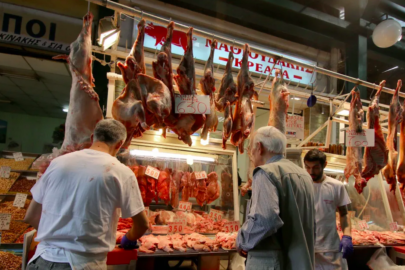The Eurogroup discussed the current review of the Greece’s commitments under the existing arrangement. Ministers agreed that Greece and the European Commission, the European Central Bank and the International Monetary Fund would begin discussions on Wednesday (11 March), in Brussels.
Technical teams from the institutions will be welcome in Athens to support this process.
Eurogroup Chief Jeroen Dijsselbloem
After the last Eurogroup decision on the extension of the current programme, the Eurogroup had a short discussion on Greece, focusing mainly on the process which “should have been started” after that decision. “We agreed today that there is no further time to loose,” said Dijsselbloem. “The discussions between the Greek authorities and the institutions must and will start as from Wednesday (11/03/2015), with a view to achieve a speedy and successful conclusion of the current review. In this context, we agreed that the discussions with the institutions will take place in Brussels. In parallel, as needed, technical teams from the institutions will be welcomed in Athens, with a view to support this process jointly and together also as of Wednesday.”
Dijsselbloem said that views were exchanged on the reform of the service sector. “The service sector, I don’t need to explain, is of great economic importance for the whole euro area and improving its performance would generate significant gains that would spread to the rest of the economy. For example, Commission estimates suggest that reducing restrictions to the level of the five best performing countries in the EU would bring gains amounting to around 2.4% of GDP at the EU level. This is extra potential growth if we could bring down the level of restrictions in services to the level of the best five performing countries,” he said.
He underlined the importance of adjusting to shocks and correcting imbalances as the euro area countries do not have exchange rate flexibilities, other mechanisms are particularly important to adjust to shocks and correct imbalances. This can be facilitated through a proper functioning of markets, where services are an essential element.
EU Economic and Monetary Affairs Commissioner Pierre Moscovici
There was no detailed discussion on technical matters. He said that Greece’s commitments have to be respected as they are the basis for extending the program so it is essential to make sure that they are put into practice by decisions. This requires a great deal of technical work in contact with the institutions. He pointed to Wednesday as a key date.
ESM Managing Director Klaus Regling
He refered to the transactions between Greece and the ESM and stated that Greece has made its payments on time.
Finance Minister Yanis Varoufakis
The February 20 agreement was never going to be completed within a day, said Finance Minister Yanis Varoufakis, however he pledged that it “would come to fruition day by day and well before the deadline”. He announced that on Wednesday morning the Greek team would commence technical discussions with the “institutions” in Brussels.
During Q&A time, Varoufakis pointed to the practices of the Eurogroup (a) establish the process that leads clearly towards a review of reforms that need to be introduced (before deadline of April 20) (b) the institutions make sure that funding needs are met to safeguard success. He made it clear that there will be no ‘troika’ and said that it would not come to Greece again. He clarified that the troika of international creditors from the European Commission, European Central Bank and International Monetary Fund all walking in together and imposing policies as they have in the past will never act in such a way again. This doesn’t mean that they’ll stop visiting but that their form and style will change.
He said that the Greek government has wasted no time. Since February 24, the government has been preparing reforms to be imposed in “batches”. He pointed to a serious misunderstanding by members of the press regarding the list of 7 reforms, adding that this was never meant to be a comprehensive list but a first batch. These “batches” will all be discussed to give an impetus to the economy.
He pointed to the Eurogroup’s brilliance in accepting different opinions, something he views as a strength and not a weakness.
And in Greek…
Regarding the referendum… he attributed to ‘purely poor journalistic standards’.
Greece’s liquidity is safe, he said. In the framework of Eurogroup, there are a number of bilateral discussions. He said that he met with EU Economic and Monetary Affairs Commissioner Pierre Moscovici, European Central Bank President Mario Draghi, IMF European Director Poul Thomsen, following Eurogroup he met with German Finance Minister Wolfgang Schauble and ESM Director Klaus Regling. He said that these discussions are confidential and the common goal was to ensure a positive conclusion for the Eurozone. Once again, he stressed that the Greek government’s priority was the humanitarian crisis in Greece.
On the referendum, once again… He never intended a referendum! The headline of the Italian newspaper has no bearing on the text. He said that he responded to a hypothetical question and stated that there would be a referendum, not on the euro, but on the future of Greece following an impasse. He said, however, that Greece’s reforms have been accepted. He said that the media has created a number of problems with Greece’s communication with its EU partners through distortions.
How the old program has failed…
German Finance Minister Wolfgang Schauble
































